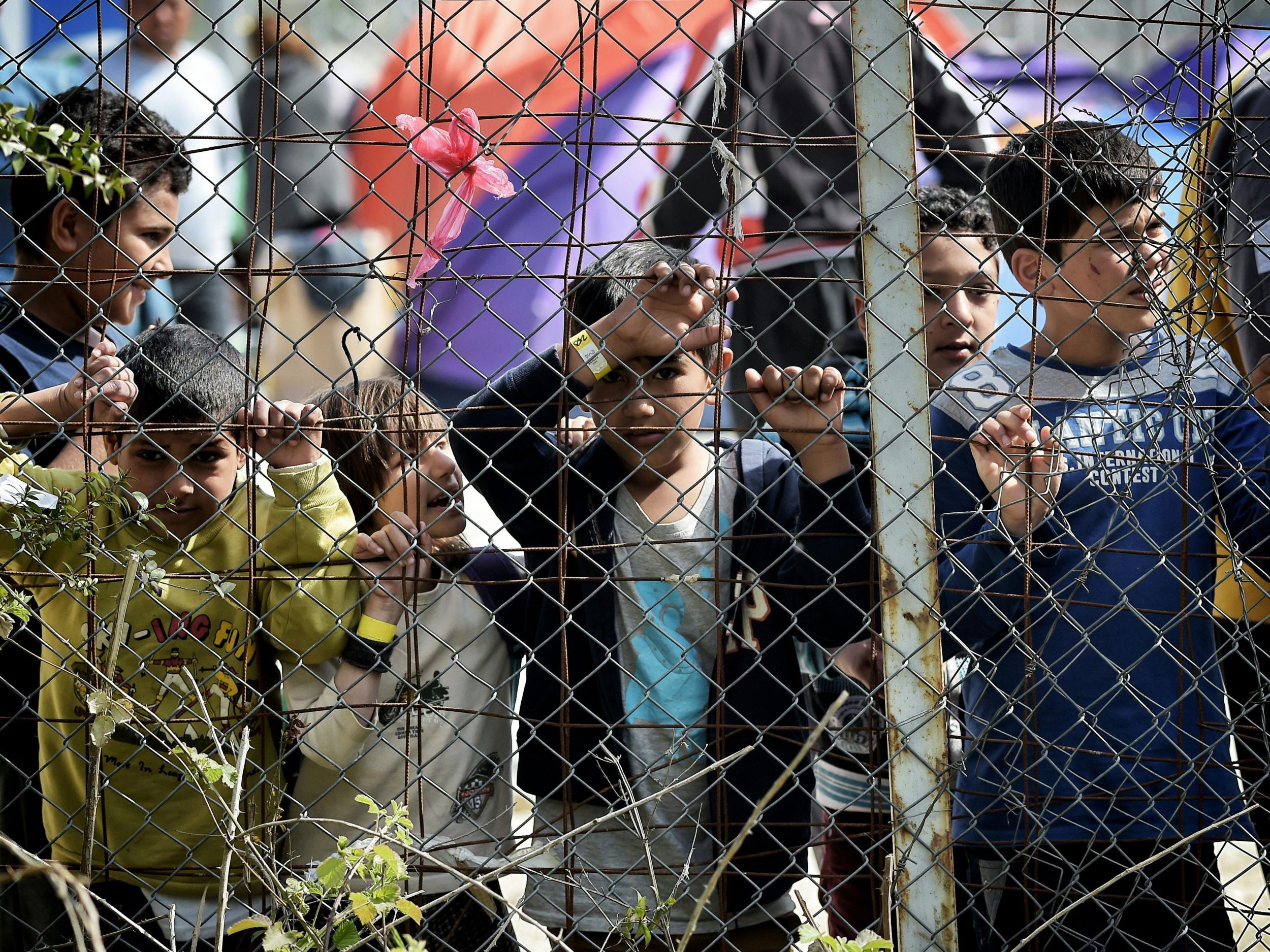Number of unaccompanied child refugees in Greek detention centres rises 'alarmingly', says human rights group
'Dozens of vulnerable children are locked in dirty, crowded facilities, in some cases with unrelated adults'

Your support helps us to tell the story
From reproductive rights to climate change to Big Tech, The Independent is on the ground when the story is developing. Whether it's investigating the financials of Elon Musk's pro-Trump PAC or producing our latest documentary, 'The A Word', which shines a light on the American women fighting for reproductive rights, we know how important it is to parse out the facts from the messaging.
At such a critical moment in US history, we need reporters on the ground. Your donation allows us to keep sending journalists to speak to both sides of the story.
The Independent is trusted by Americans across the entire political spectrum. And unlike many other quality news outlets, we choose not to lock Americans out of our reporting and analysis with paywalls. We believe quality journalism should be available to everyone, paid for by those who can afford it.
Your support makes all the difference.The number of unaccompanied child migrants living in "dirty" Greek detention centres has increased "alarmingly", a human rights organisation has warned.
An estimated 117 children were in police cells or custody centres in Greece at the end of July, compared to just two in November 2016, according to figures released by the country's government.
Under Greek law, the authorities should separate minors into safe accommodation, where they are appointed guardians who represent them in legal proceedings.
But when there is no space in safe shelters, the authorities detain them in police stations and immigration detention facilities, sometimes with unrelated adults.
“Instead of being cared for, dozens of vulnerable children are locked in dirty, crowded police cells and other detention facilities across Greece, in some cases with unrelated adults,” said Eva Cossé, the country's researcher at Human Rights Watch.
“The Greek government has a duty to end this abusive practice and make sure these vulnerable kids get the care and protection they need.”
Human Rights Watch has written to Migration Policy Minister Yiannis Mouzalas to stop the automatic detention of unaccompanied children.
It suggested the government should amend legislation and significantly shorten the amount of time a child can be detained in protective custody.
While they wait for a space in a shelter, many children are not provided with information about their rights and are not told how to apply for asylum, the organisation said.
Aid workers have previously reported that the uncertainty and distress caused by the asylum process, exacerbated an ongoing mental health crisis among migrants living on the islands.
Children as young as nine have harmed themselves, while 12-year-olds have attempted to kill themselves, Save the Children said in March.
In some cases, the group said that children were being wrongly identified as adults and were placed in adult camps.
Subscribe to Independent Premium to bookmark this article
Want to bookmark your favourite articles and stories to read or reference later? Start your Independent Premium subscription today.
Join our commenting forum
Join thought-provoking conversations, follow other Independent readers and see their replies
Comments